-
75 results in Exploration of Asthma & AllergySort byLatest
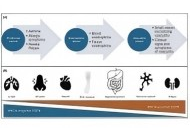 Once upon a time: the curious case of a backward story of EGPAOpen AccessCase ReportA high percentage of patients with severe asthma also suffer from nasal polyposis, with dupilumab, an anti-IL-4R antibody both diseases can be treated due to its role in type 2 (T2) inflammation. Wh [...] Read more.Diego Bagnasco ... Fulvio BraidoPublished: March 20, 2025 Explor Asthma Allergy. 2025;3:100975
Once upon a time: the curious case of a backward story of EGPAOpen AccessCase ReportA high percentage of patients with severe asthma also suffer from nasal polyposis, with dupilumab, an anti-IL-4R antibody both diseases can be treated due to its role in type 2 (T2) inflammation. Wh [...] Read more.Diego Bagnasco ... Fulvio BraidoPublished: March 20, 2025 Explor Asthma Allergy. 2025;3:100975
DOI: https://doi.org/10.37349/eaa.2025.100975
This article belongs to the special issue The Era of Biologics in Allergy Telemedicine and remote monitoring in asthma care: innovations triggered by the pandemicOpen AccessReviewTelemedicine (TM) is rapidly gaining recognition as a valuable tool for accessing medical treatments globally. The article aimed to review the latest literature on the role of TM in asthma care. It [...] Read more.Andrea Giovanni Ledda ... Stefano Del GiaccoPublished: March 09, 2025 Explor Asthma Allergy. 2025;3:100974
Telemedicine and remote monitoring in asthma care: innovations triggered by the pandemicOpen AccessReviewTelemedicine (TM) is rapidly gaining recognition as a valuable tool for accessing medical treatments globally. The article aimed to review the latest literature on the role of TM in asthma care. It [...] Read more.Andrea Giovanni Ledda ... Stefano Del GiaccoPublished: March 09, 2025 Explor Asthma Allergy. 2025;3:100974
DOI: https://doi.org/10.37349/eaa.2025.100974
This article belongs to the special issue The Global Picture of Asthma after Guideline Changes and the COVID Pandemics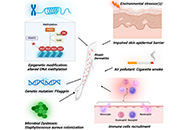 Pathogenesis and management of atopic dermatitis: insights into epidermal barrier dysfunction and immune mechanismsOpen AccessReviewAtopic dermatitis (AD) is a chronic inflammatory skin disease characterized by a compromised epidermal barrier and heightened immunoglobulin E (IgE) levels, often associated with filaggrin (FLG) gen [...] Read more.Antara Baidya, Ulaganathan MabalirajanPublished: February 07, 2025 Explor Asthma Allergy. 2025;3:100973
Pathogenesis and management of atopic dermatitis: insights into epidermal barrier dysfunction and immune mechanismsOpen AccessReviewAtopic dermatitis (AD) is a chronic inflammatory skin disease characterized by a compromised epidermal barrier and heightened immunoglobulin E (IgE) levels, often associated with filaggrin (FLG) gen [...] Read more.Antara Baidya, Ulaganathan MabalirajanPublished: February 07, 2025 Explor Asthma Allergy. 2025;3:100973
DOI: https://doi.org/10.37349/eaa.2025.100973
This article belongs to the special issue Atopic Dermatitis – Pathology and Treatment modalities Manifesto of the rights and duties of persons with respiratory allergiesOpen AccessConsensus StatementMario Di Gioacchino ... Giorgio Walter CanonicaPublished: February 07, 2025 Explor Asthma Allergy. 2025;3:100972
Manifesto of the rights and duties of persons with respiratory allergiesOpen AccessConsensus StatementMario Di Gioacchino ... Giorgio Walter CanonicaPublished: February 07, 2025 Explor Asthma Allergy. 2025;3:100972
DOI: https://doi.org/10.37349/eaa.2025.100972 Rights and duties of patients with respiratory allergyOpen AccessEditorialMario Di Gioacchino ... Giorgio Walter CanonicaPublished: February 07, 2025 Explor Asthma Allergy. 2025;3:100971
Rights and duties of patients with respiratory allergyOpen AccessEditorialMario Di Gioacchino ... Giorgio Walter CanonicaPublished: February 07, 2025 Explor Asthma Allergy. 2025;3:100971
DOI: https://doi.org/10.37349/eaa.2025.100971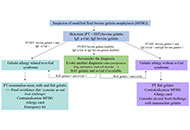 Is bovine gelatin anaphylaxis always associated with α-Gal syndrome? Two case reports and a literature reviewOpen AccessCase ReportGelatin is extracted from beef, pork, and fish tissues. An increasing number of cases of gelatin-induced anaphylaxis are associated with α-Gal syndrome (AGS). Only a few cases of anaphylaxis to bovine gelatin (BG) without AGS (BG [...] Read more.Louise Guyot ... Martine MorissetPublished: January 23, 2025 Explor Asthma Allergy. 2025;3:100970
Is bovine gelatin anaphylaxis always associated with α-Gal syndrome? Two case reports and a literature reviewOpen AccessCase ReportGelatin is extracted from beef, pork, and fish tissues. An increasing number of cases of gelatin-induced anaphylaxis are associated with α-Gal syndrome (AGS). Only a few cases of anaphylaxis to bovine gelatin (BG) without AGS (BG [...] Read more.Louise Guyot ... Martine MorissetPublished: January 23, 2025 Explor Asthma Allergy. 2025;3:100970
DOI: https://doi.org/10.37349/eaa.2025.100970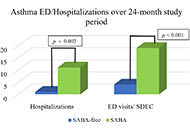 Short-term outcomes after implementation of SABA-free asthma management with a maintenance and anti-inflammatory reliever regimen within primary careOpen AccessOriginal ArticleAim: Short-acting β2-agonist (SABA) overuse adversely affects asthma-related outcomes and the environment. The latest Global Initiative for Asthma (GINA) report no longer recommends SABA-only th [...] Read more.Samantha Harrison ... Sudip GhoshPublished: January 20, 2025 Explor Asthma Allergy. 2025;3:100969
Short-term outcomes after implementation of SABA-free asthma management with a maintenance and anti-inflammatory reliever regimen within primary careOpen AccessOriginal ArticleAim: Short-acting β2-agonist (SABA) overuse adversely affects asthma-related outcomes and the environment. The latest Global Initiative for Asthma (GINA) report no longer recommends SABA-only th [...] Read more.Samantha Harrison ... Sudip GhoshPublished: January 20, 2025 Explor Asthma Allergy. 2025;3:100969
DOI: https://doi.org/10.37349/eaa.2025.100969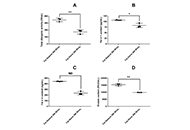 Influence of the definition of the standardization unit on the in vitro potency of cat allergen extractsOpen AccessLetter to the EditorIn a previous study, we conducted an in vitro comparison of two sublingual allergy immunotherapy products, namely, house dust mite (HDM) Staloral 300 IR/mL produced by Stallergenes Greer, and HDM Os [...] Read more.Thierry Batard ... Laurent MascarellPublished: January 17, 2025 Explor Asthma Allergy. 2025;3:100968
Influence of the definition of the standardization unit on the in vitro potency of cat allergen extractsOpen AccessLetter to the EditorIn a previous study, we conducted an in vitro comparison of two sublingual allergy immunotherapy products, namely, house dust mite (HDM) Staloral 300 IR/mL produced by Stallergenes Greer, and HDM Os [...] Read more.Thierry Batard ... Laurent MascarellPublished: January 17, 2025 Explor Asthma Allergy. 2025;3:100968
DOI: https://doi.org/10.37349/eaa.2025.100968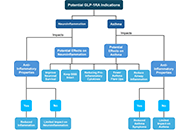 The therapeutic potential of glucagon-like peptide-1 receptor analogs for neuroinflammation in the setting of asthmaOpen AccessReviewGlucagon-like peptide-1 (GLP-1) is a hormone that regulates blood glucose levels and is produced by the enteroendocrine glands in the large and small intestines in response to the consumption of foo [...] Read more.Courtney Lehman, Ray Stokes PeeblesPublished: January 16, 2025 Explor Asthma Allergy. 2025;3:100967
The therapeutic potential of glucagon-like peptide-1 receptor analogs for neuroinflammation in the setting of asthmaOpen AccessReviewGlucagon-like peptide-1 (GLP-1) is a hormone that regulates blood glucose levels and is produced by the enteroendocrine glands in the large and small intestines in response to the consumption of foo [...] Read more.Courtney Lehman, Ray Stokes PeeblesPublished: January 16, 2025 Explor Asthma Allergy. 2025;3:100967
DOI: https://doi.org/10.37349/eaa.2025.100967 The evolving therapeutic landscape in atopic dermatitisOpen AccessReviewAtopic dermatitis (AD) is a prevalent chronic inflammatory skin disorder affecting millions worldwide, with significant variations in clinical presentation influenced by socioeconomic, racial, and e [...] Read more.Luis Angel Hernández-Zárate ... Víctor González-UribePublished: January 14, 2025 Explor Asthma Allergy. 2025;3:100966
The evolving therapeutic landscape in atopic dermatitisOpen AccessReviewAtopic dermatitis (AD) is a prevalent chronic inflammatory skin disorder affecting millions worldwide, with significant variations in clinical presentation influenced by socioeconomic, racial, and e [...] Read more.Luis Angel Hernández-Zárate ... Víctor González-UribePublished: January 14, 2025 Explor Asthma Allergy. 2025;3:100966
DOI: https://doi.org/10.37349/eaa.2025.100966
This article belongs to the special issue Atopic Dermatitis – Pathology and Treatment modalities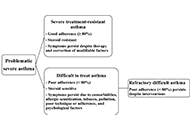 Update on the diagnosis of severe asthma in children and adolescentsOpen AccessReviewSevere pediatric asthma is a very challenging type of asthma for both physicians and patients. Precision medicine in severe pediatric asthma has undergone important developments in recent years. Thi [...] Read more.Alberto VidalPublished: January 10, 2025 Explor Asthma Allergy. 2025;3:100965
Update on the diagnosis of severe asthma in children and adolescentsOpen AccessReviewSevere pediatric asthma is a very challenging type of asthma for both physicians and patients. Precision medicine in severe pediatric asthma has undergone important developments in recent years. Thi [...] Read more.Alberto VidalPublished: January 10, 2025 Explor Asthma Allergy. 2025;3:100965
DOI: https://doi.org/10.37349/eaa.2025.100965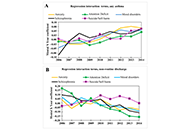 Interaction of asthma, co-occurring mental illness, and geography on California emergency department visits, 2005–2014Open AccessOriginal ArticleAim: To determine temporal changes in the frequency of asthma and mental illness in California emergency department (ED) visits and examine predictors of both asthma diagnosis and non-routine dis [...] Read more.Jim E. Banta ... James M. BantaPublished: November 04, 2024 Explor Asthma Allergy. 2024;2:551–571
Interaction of asthma, co-occurring mental illness, and geography on California emergency department visits, 2005–2014Open AccessOriginal ArticleAim: To determine temporal changes in the frequency of asthma and mental illness in California emergency department (ED) visits and examine predictors of both asthma diagnosis and non-routine dis [...] Read more.Jim E. Banta ... James M. BantaPublished: November 04, 2024 Explor Asthma Allergy. 2024;2:551–571
DOI: https://doi.org/10.37349/eaa.2024.00064
This article belongs to the special issue Asthma and its Relationship with Psychological and Psychopathological Factors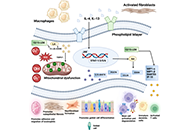 Deciphering the role of 12/15-lipoxygenase in asthma: insights into mitochondrial dysfunction and therapeutic implicationsOpen AccessReviewThis review delves into the complex role of 12/15-lipoxygenase (12/15-LOX) in asthma pathogenesis, focusing on its contributions to mitochondrial dysfunction, oxidative stress, epithelial injury, an [...] Read more.Mandya V. Greeshma ... Padukudru Anand MaheshPublished: October 22, 2024 Explor Asthma Allergy. 2024;2:529–550
Deciphering the role of 12/15-lipoxygenase in asthma: insights into mitochondrial dysfunction and therapeutic implicationsOpen AccessReviewThis review delves into the complex role of 12/15-lipoxygenase (12/15-LOX) in asthma pathogenesis, focusing on its contributions to mitochondrial dysfunction, oxidative stress, epithelial injury, an [...] Read more.Mandya V. Greeshma ... Padukudru Anand MaheshPublished: October 22, 2024 Explor Asthma Allergy. 2024;2:529–550
DOI: https://doi.org/10.37349/eaa.2024.00063
This article belongs to the special issue Molecules Involved in the Phenotypes of Asthma and/or Allergic Diseases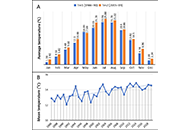 Allergy in the Po Valley: evolution of sensitization profiles and phenology throughout 33 years and possible relationship with climate changeOpen AccessOriginal ArticleAim: Epidemiological surveys show substantial modification over time of pollens sensitization profiles, with relevant difference across geo-climatic zone. Climate changes can affect the onset, du [...] Read more.Andrea Antico ... Renato ArianoPublished: September 29, 2024 Explor Asthma Allergy. 2024;2:511–528
Allergy in the Po Valley: evolution of sensitization profiles and phenology throughout 33 years and possible relationship with climate changeOpen AccessOriginal ArticleAim: Epidemiological surveys show substantial modification over time of pollens sensitization profiles, with relevant difference across geo-climatic zone. Climate changes can affect the onset, du [...] Read more.Andrea Antico ... Renato ArianoPublished: September 29, 2024 Explor Asthma Allergy. 2024;2:511–528
DOI: https://doi.org/10.37349/eaa.2024.00062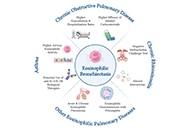 Eosinophilic inflammation in bronchiectasis: a wide-open field for future researchOpen AccessCommentaryBronchiectasis is a heterogeneous chronic lung disease, characterised by irreversible dilatation of the airways and attributed to a wide spectrum of other underlying conditions, usually underdiagnos [...] Read more.Andreas M. Matthaiou ... Adamantia LiapikouPublished: September 23, 2024 Explor Asthma Allergy. 2024;2:502–510
Eosinophilic inflammation in bronchiectasis: a wide-open field for future researchOpen AccessCommentaryBronchiectasis is a heterogeneous chronic lung disease, characterised by irreversible dilatation of the airways and attributed to a wide spectrum of other underlying conditions, usually underdiagnos [...] Read more.Andreas M. Matthaiou ... Adamantia LiapikouPublished: September 23, 2024 Explor Asthma Allergy. 2024;2:502–510
DOI: https://doi.org/10.37349/eaa.2024.00061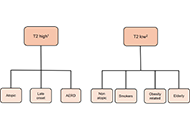 Tezepelumab: a promising therapy for severe uncontrolled asthmaOpen AccessReviewAsthma is a complex inflammatory airway disease affecting a significant global population, spanning from childhood through adulthood. Despite advances in treatment modalities, a significant subset o [...] Read more.Argyri Klironomou ... Nikoletta RovinaPublished: September 22, 2024 Explor Asthma Allergy. 2024;2:485–501
Tezepelumab: a promising therapy for severe uncontrolled asthmaOpen AccessReviewAsthma is a complex inflammatory airway disease affecting a significant global population, spanning from childhood through adulthood. Despite advances in treatment modalities, a significant subset o [...] Read more.Argyri Klironomou ... Nikoletta RovinaPublished: September 22, 2024 Explor Asthma Allergy. 2024;2:485–501
DOI: https://doi.org/10.37349/eaa.2024.00060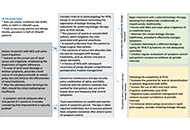 A mini-update on chronic rhinosinusitisOpen AccessReviewChronic rhinosinusitis (CRS) is an inflammatory disorder of the paranasal sinuses and the nasal cavity lasting longer than 12 weeks. This disease is a common clinical syndrome with significant monet [...] Read more.Sepideh Darougar ... Pantea Bozorg SavojiPublished: September 19, 2024 Explor Asthma Allergy. 2024;2:473–484
A mini-update on chronic rhinosinusitisOpen AccessReviewChronic rhinosinusitis (CRS) is an inflammatory disorder of the paranasal sinuses and the nasal cavity lasting longer than 12 weeks. This disease is a common clinical syndrome with significant monet [...] Read more.Sepideh Darougar ... Pantea Bozorg SavojiPublished: September 19, 2024 Explor Asthma Allergy. 2024;2:473–484
DOI: https://doi.org/10.37349/eaa.2024.00059
This article belongs to the special issue Update on Chronic RhinoSinusitis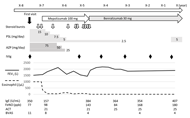 Long-term efficacy of mepolizumab on eosinophilic granulomatosis with polyangiitis: a retrospective studyOpen AccessOriginal ArticleAim: Eosinophilic granulomatosis with polyangiitis (EGPA) is a vasculitis characterized by eosinophilic inflammation. Patients with EGPA are treated with systemic glucocorticoids and immunosuppre [...] Read more.Takahiro Matsuyama ... Hiromasa InouePublished: September 19, 2024 Explor Asthma Allergy. 2024;2:461–472
Long-term efficacy of mepolizumab on eosinophilic granulomatosis with polyangiitis: a retrospective studyOpen AccessOriginal ArticleAim: Eosinophilic granulomatosis with polyangiitis (EGPA) is a vasculitis characterized by eosinophilic inflammation. Patients with EGPA are treated with systemic glucocorticoids and immunosuppre [...] Read more.Takahiro Matsuyama ... Hiromasa InouePublished: September 19, 2024 Explor Asthma Allergy. 2024;2:461–472
DOI: https://doi.org/10.37349/eaa.2024.00058
This article belongs to the special issue Molecules Involved in the Phenotypes of Asthma and/or Allergic Diseases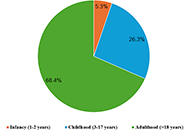 Atopic dermatitis in adults: prevalence, clinical pattern, and contact sensitizationOpen AccessOriginal ArticleAim: Few reports on atopic dermatitis (AD) in adults from Africa exist in the literature. AD in adults can occur as childhood-onset, in which AD begins in childhood and continues till adulthood, [...] Read more.Perpetua U. Ibekwe ... Bob A. UkonuPublished: September 06, 2024 Explor Asthma Allergy. 2024;2:450–460
Atopic dermatitis in adults: prevalence, clinical pattern, and contact sensitizationOpen AccessOriginal ArticleAim: Few reports on atopic dermatitis (AD) in adults from Africa exist in the literature. AD in adults can occur as childhood-onset, in which AD begins in childhood and continues till adulthood, [...] Read more.Perpetua U. Ibekwe ... Bob A. UkonuPublished: September 06, 2024 Explor Asthma Allergy. 2024;2:450–460
DOI: https://doi.org/10.37349/eaa.2024.00057
This article belongs to the special issue Atopic Dermatitis – Pathology and Treatment modalities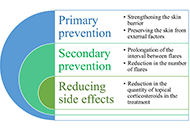 Current approach to moisturizer and emollient utilization in atopic dermatitis: a reviewOpen AccessReviewAtopic dermatitis (AD) is a chronic inflammatory skin disease that primarily affects the barrier function of the skin in patients. The condition has been documented to cause xerosis in patients from [...] Read more.Serap MadenPublished: August 27, 2024 Explor Asthma Allergy. 2024;2:441–449
Current approach to moisturizer and emollient utilization in atopic dermatitis: a reviewOpen AccessReviewAtopic dermatitis (AD) is a chronic inflammatory skin disease that primarily affects the barrier function of the skin in patients. The condition has been documented to cause xerosis in patients from [...] Read more.Serap MadenPublished: August 27, 2024 Explor Asthma Allergy. 2024;2:441–449
DOI: https://doi.org/10.37349/eaa.2024.00056
This article belongs to the special issue Atopic Dermatitis – Pathology and Treatment modalities -
